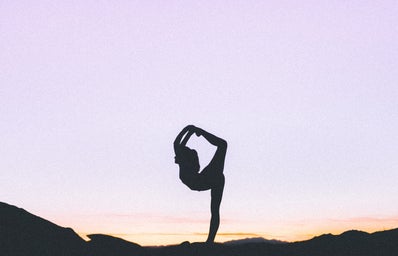As fall term begins, a lot of people are still in the transition from summer to fall. Now is the perfect time to get into a good workout routine that you can keep throughout the year. Starting a manageable workout routine and keeping it is not as easy thing to do, especially with the busy schedule of a college student. Exercise has many physiological and psychological benefits, especially with the stresses that come with college. Getting into a good workout routine will not only improve your physical health but has shown to make people feel happier and can even help you focus better when in class or studying. Most people focus on their body image as a sign of results from working out, when really one should workout to maintain their health. With how easy it is to get sick at school, it’s essential to do as much as you can to stay healthy. A beach body shouldn’t be the end goal of your fitness journey, although it will be a plus.
The American College of Sports Medicine is an organization whose goal is to use scientific research to find easyways to approach exercise. It’s a super reliable source to look at when you’re stuck in a fitness rut. You can visit their site to learn more about them and their tactics.. The ACSM is helpful because they offer exercise guidelines and recommendations for people of all ages. For adults, the recommendation for cardiovascular exercise is 150 minutes of moderate intensity per week. This recommendation can be met by 30-60 minutes of moderate intensity exercise five days of the week or 20-60 minutes of high-intensity exercise on 3 weekdays. Walking is considered moderate cardiovascular exercise, so college students should take into account the amount of time they spend walking around campus when they are thinking about their activity level.
Strength training is also extremely important. Strength training can help improve bone density and increase muscle mass, which will directly increase one’s basal metabolic rate, helping you burn those extra calories from Insomnia. The ACSM recommends that adults train each major muscle group two or three days of the week. Exercises should be done for 2-4 sets with 8 -12 repetitions to improve strength and power. For newbies starting strength training very light to light intensity is recommended. One should wait at least 48-hours between strength training exercises to give the body adequate rest. When making a training routine keep this mind, maybe alternate your strength training days with your cardio days or rest days depending on your schedule and preferences. Flexibility is also important and often forgotten. The ACSM recommends adults to do flexibility exercises at least 2-3 days per week, with each stretch being held for 10-30 seconds. Each stretch should be done twice. Stretching in the morning or at night before bed is an easy way to get in your stretching and get you started for the day or relax you before sleep.
What is important about the ACSM guidelines is that they are the recommended amount of exercise to keep one healthy. Maintaining a healthy lifestyle does not mean one has to be an Olympic level athlete or fitness addict. When just getting into exercise or starting a workout routine one should start slow. Focus on getting at least 150 minutes of cardiovascular exercise (take into account your walking!), make an effort to stretch and start out with light strength training. Gradually increase your exercise from here if you wish. Don’t start an intense workout regimen all at once and expect to keep it.
You don’t have to go to the gym for an hour to get in a good workout. A brisk walk outside, stretching, or strength training in your room during a study break can help you reach your exercise goals. Finding breaks in between classes is more manageable and will help you be successful in maintaining a steady exercise routine.
Use the ACSM guidelines as a goal to meet if you never exercise or as a baseline if you already exercise or are looking to improve or be more consistent. The most important thing, however, is that your goal in exercise should be to be HEALTHY not to achieve an unrealistic “perfect beach body”. Perfect is boring.

